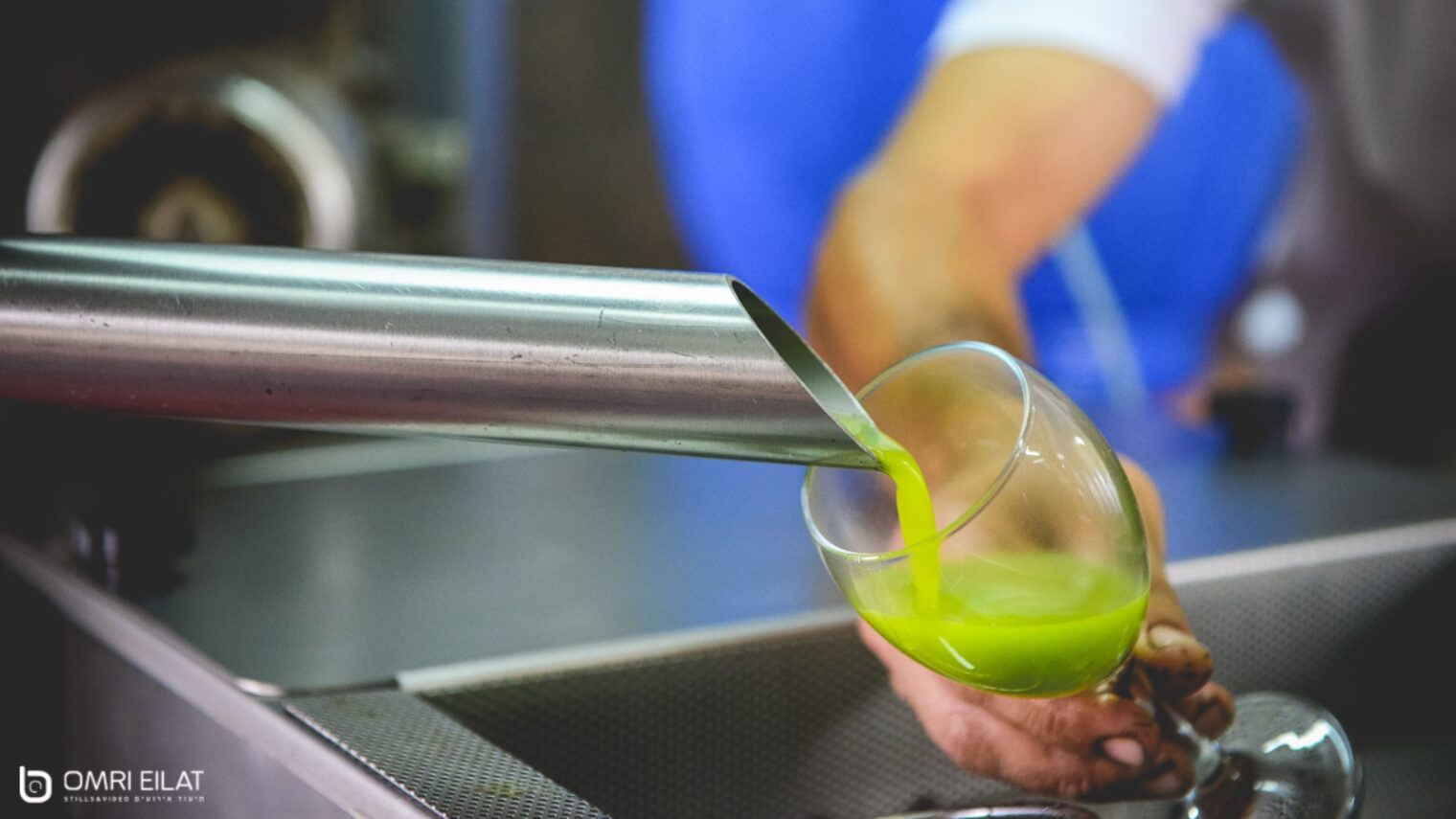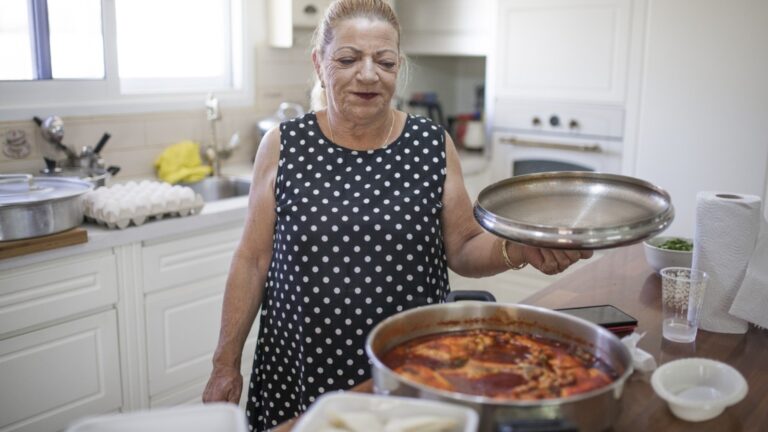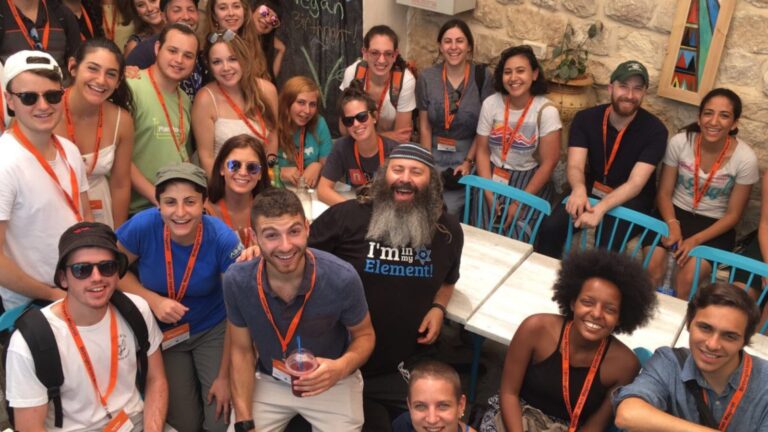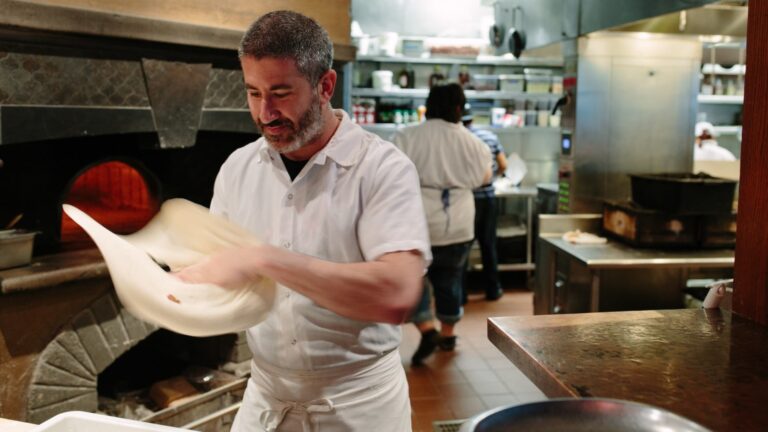Olive trees have an ancient presence in Israeli land and culture, so it’s no wonder that this rich source of antioxidants, vitamins and minerals is a pretty big deal here.
Olive oil is yet another avenue in modern Israeli cuisine where tradition, revival and gourmet trends intersect. After gaining traction in recent years, the ancient craft of olive oil-making in the region has had a rebirth. The national and international awards won by hundreds of boutique brands all over the country are the proof in the pudding.
Treated like fine wines made up of curated blends or single varietals, Israeli olive oils are meant to be tasted critically for subtleties such as body, mouth feel and flavor notes that stem from the cultivation, processing and types of olives used.
Once these elements are understood, they can be paired with different foods, such as bread and cheese, which complement the distinct flavors and qualities of the oils and their individually recommended uses, just like with fine wine.
These are our picks of the top boutique brands producing some of the finest extra-virgin olive oils around. Visit these presses and farms in Israel, or order a bottle online. You’ll gain an understanding of what real fresh unadulterated olive oil can and should be.
1. Galili
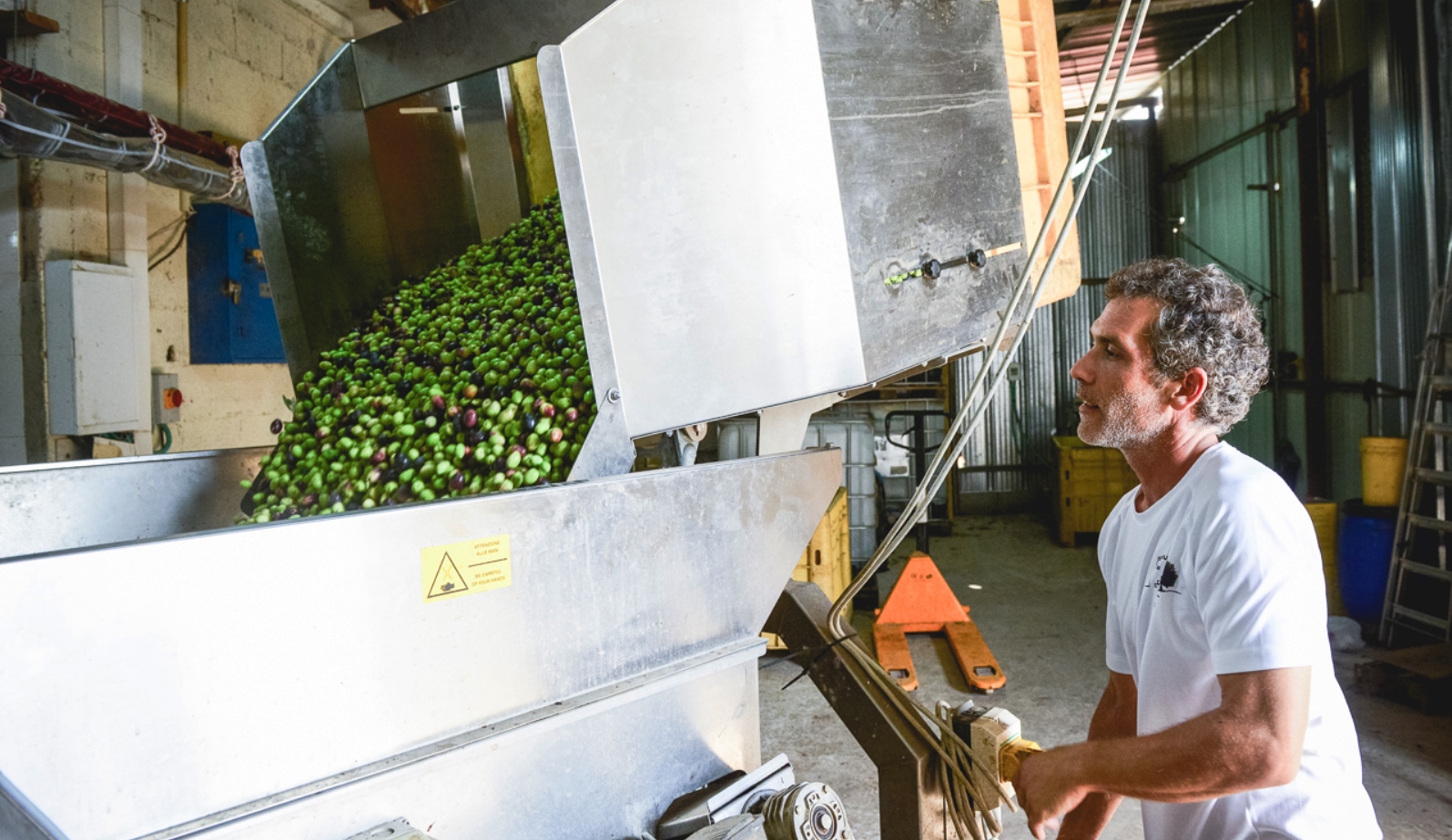
Family-owned Galili Olive Oil operates out of pastoral Beit Lehem (Bethlehem) Haglilit, a center for boutique food production in the Western Galilee. The family tends its 20-year-old organic olive grove on the edge of an ancient oak forest.
What started as a family hobby turned into a full-blown business and tourist center when Eran, the youngest Galili child, built a boutique mill in 2010 using a special olive press brought in from Tuscany.
In the visitors’ center you can taste seven oil varieties in addition to fine goat cheese, wines and other unique delicacies produced at boutique farms in the area.
The Galilis also organize a yearly competition for family-run boutique olive oil brands. The last event featured 204 different varieties.
2. Ptora
One of the first families to settle Moshav Sdeh Moshe in the late 1950s, the tiny farming community in Israel’s northern Negev, the Tamir family spent the next three generations growing grapes and olives in the region’s rich soil and clean air.
Working with Nabali olives for its flagship olive oil, Ptora uses one of the few varieties of local olives that haven’t undergone any genetic modification.
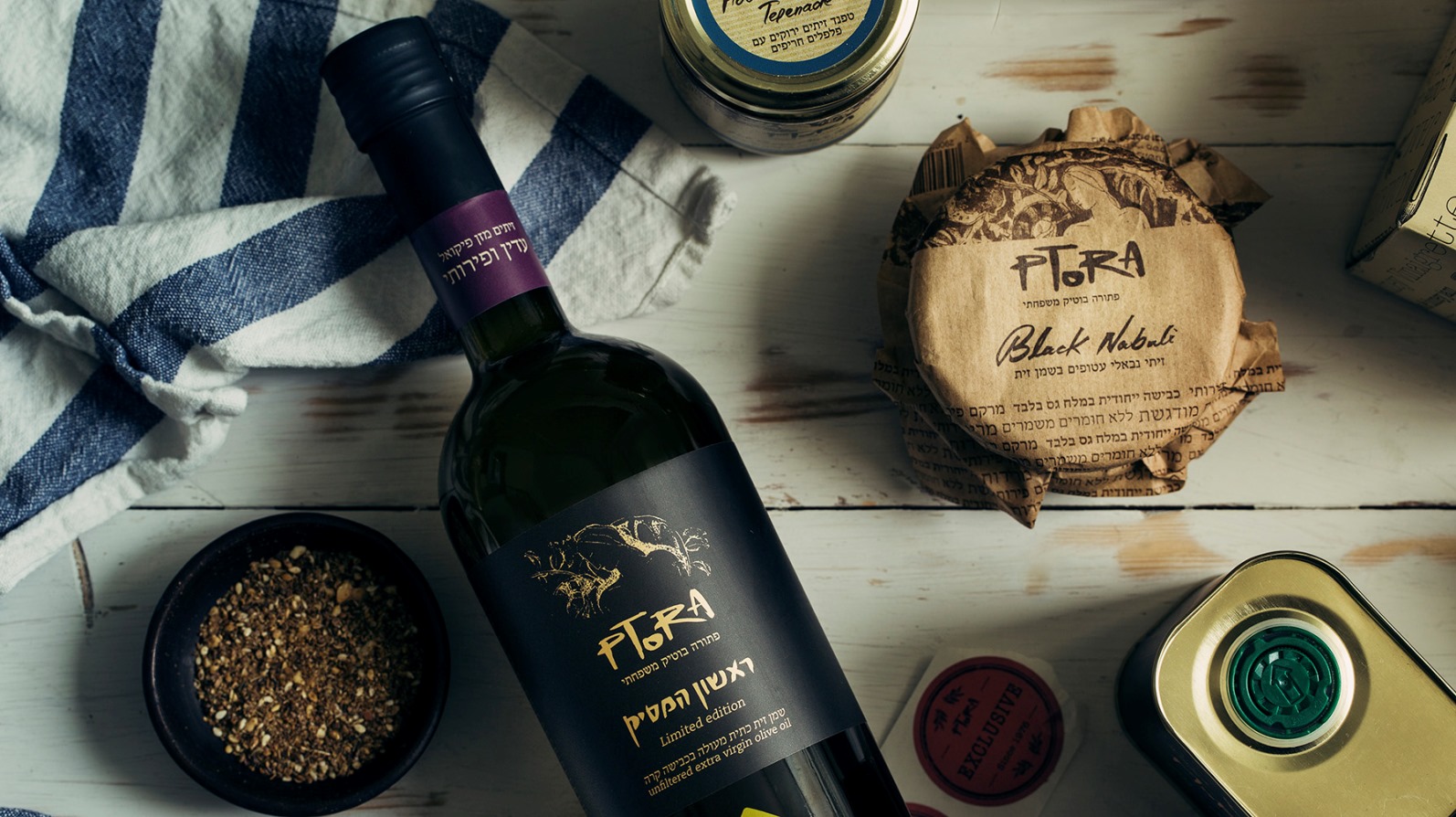
These particular olives are cultivated in 40-year-old rocky groves without pesticides. The result is a rich fruity taste, with peppery hints that create a pleasant spiciness in the oil.
Selling their wine, olive oils (including “first harvest” Picuel, Barnea, Pishulin and Cortina varieties, as well as filtered Napoleon olive oil) and other gourmet products such as honey, jams, preserves and marinades within Israel and abroad, the Tamirs are a gourmet tour de force of the Negev.
Started by a Canadian couple who made aliyah to Yavne’el near the Sea of Galilee, Galilee Green not only sells sublimely blended cold-pressed extra-virgin olive oils to customers abroad but also offers a window into the deep connection this provides the founders to the land of Israel.
This spirit moved Shmuel and Chana Veffer to till the land themselves and help build up the economy of small businesses in Israel, literally from the ground up.
Their signature oil is a blend of Barnea, Coratina and Koroneiki varietals, which are fed by the water of the Jordan River. The curated blend creates a smooth and mild oil, with a bit of lingering peppery tang (a sign of true extra-virgin oil), and delicate fruity fragrance.
4. Lavi
In Israel’s most famous region for olives, Lavi Galilean olive oil is pressed from the fruit of one single grove near the ancient city of Zippori (Sepphoris), the region’s capital for the first three centuries of the modern era.
Producer Shai Lavi veered from his family’s rabbinic heritage to revive this ancient task on the Lavi farm, which he has perfected to the level of a true artisan.

Traditional Souri olives are cultivated with the utmost care, using biologically friendly pesticides and water-saving irrigation techniques. The grove’s close proximity to the olive press ensures an especially high-quality oil that keeps well in the brand’s stainless-steel, temperature-controlled containers meant to prevent oxidation and preserve the Souri’s signature balanced aromas and fullness.
5. Shamna
In the Sharon plain in central Israel on Moshav Hagor, Shamna is another family-owned boutique olive-oil producer whose fields are close by and well-tended by the Abramov family.
Just 15 minutes from Tel Aviv, the rural atmosphere of the moshav makes an ideal spot for workshops in the Shamna visitors’ center run in partnership with local makers of handmade soap, honey and wine.
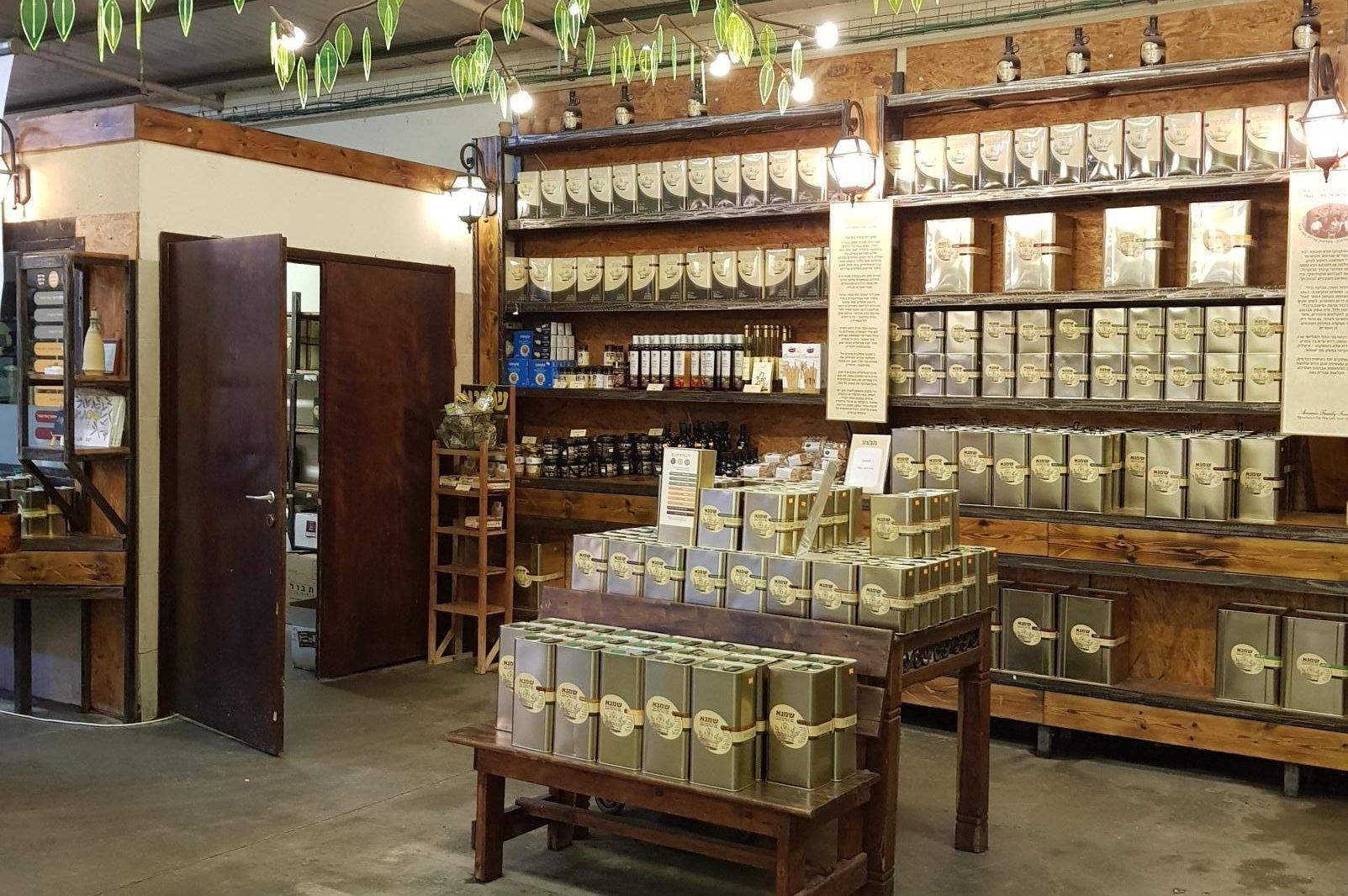
On the moshav are experiential stations where guests can take part in the olive harvest and oil processing in season, learning how it was done in ancient versus modern times, while hearing legends of the olive-oil world.
The real crown jewel is the Italian single-phase extraction system that presses the olive oil in one go, leaving all the benefits of the oil and its richness intact.
Special blends from this brand include oils made from Barnea and Fisholin, Suri and Barnea, Nabili and Suri and Barnea olives. But the most interesting could possibly be the limited-edition first-harvest oils, 10 varietals of different intensity and flavor using the very first olives of the harvest, which are bottled without filtering to highlight the sharp bitterness and deep herbaceous and fruity qualities of the fruit.
6. Masik
Located in Kibbutz Magal along the northern Sharon plain, each type of olive at Masik is grown on premium groves covering an impressive 1,200 dunams (300 acres). These olives are considered among the best in Israel.
As with the other boutique olive oils on this list, strict rules are essential for the production of Masik’s high-quality oils, including a short time from harvesting to cold pressing, and proper storage in the right container.
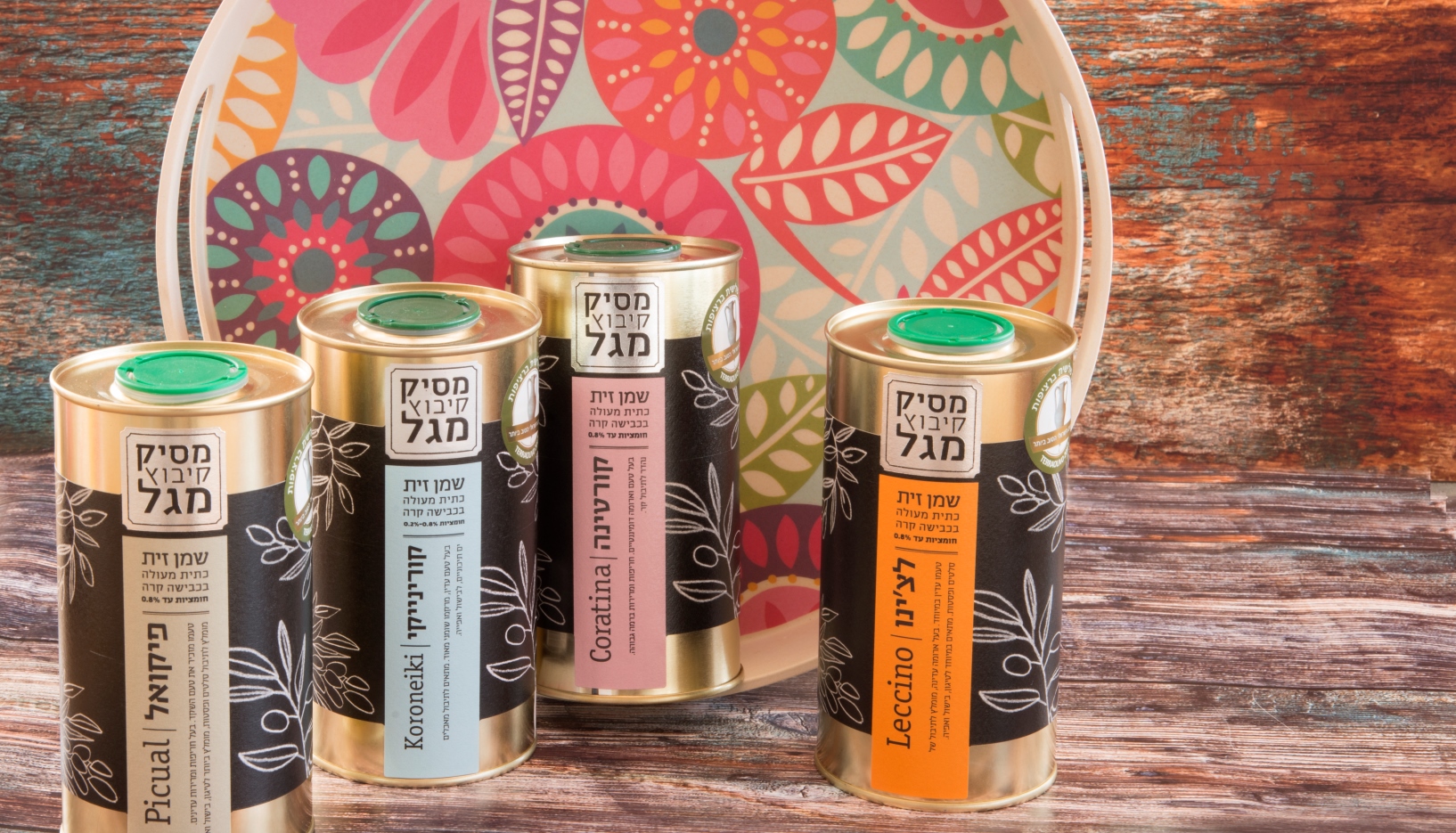
The result is limited-edition first-harvest oils, and six different oils that make up their varietal series (each made from just one kind of olive): Leccino, Picual, Koroneiki, Souri, Askal and Coratina.
To feel how the harvests vary from year to year, try the House Blend, which shows the composition and character of each year’s olives. Masik also produces an Organic Blend extracted from olives cultivated in a certified organic grove.
Masik’s home shop is located at the gate of Kibbutz Magal, where you can also enjoy other locally produced treats such as body oil, natural soaps and almonds.
7. Sindyanna
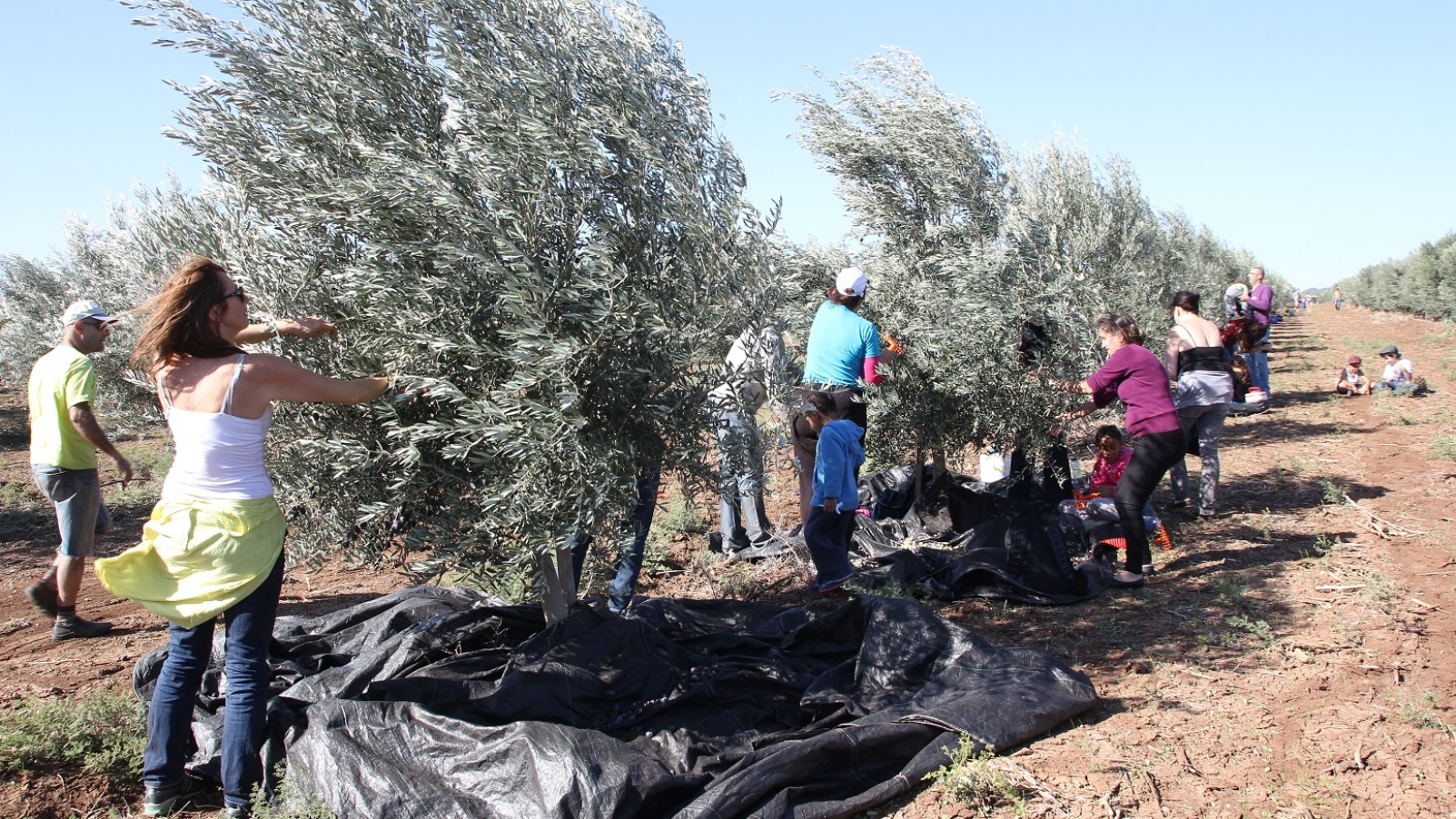
A unique nonprofit organization that brings together local Arab and Jewish women, Sindyanna of the Galilee produces boutique olive oils and other gourmet food products while promoting fair trade, ground-up community change and employment opportunities for women.
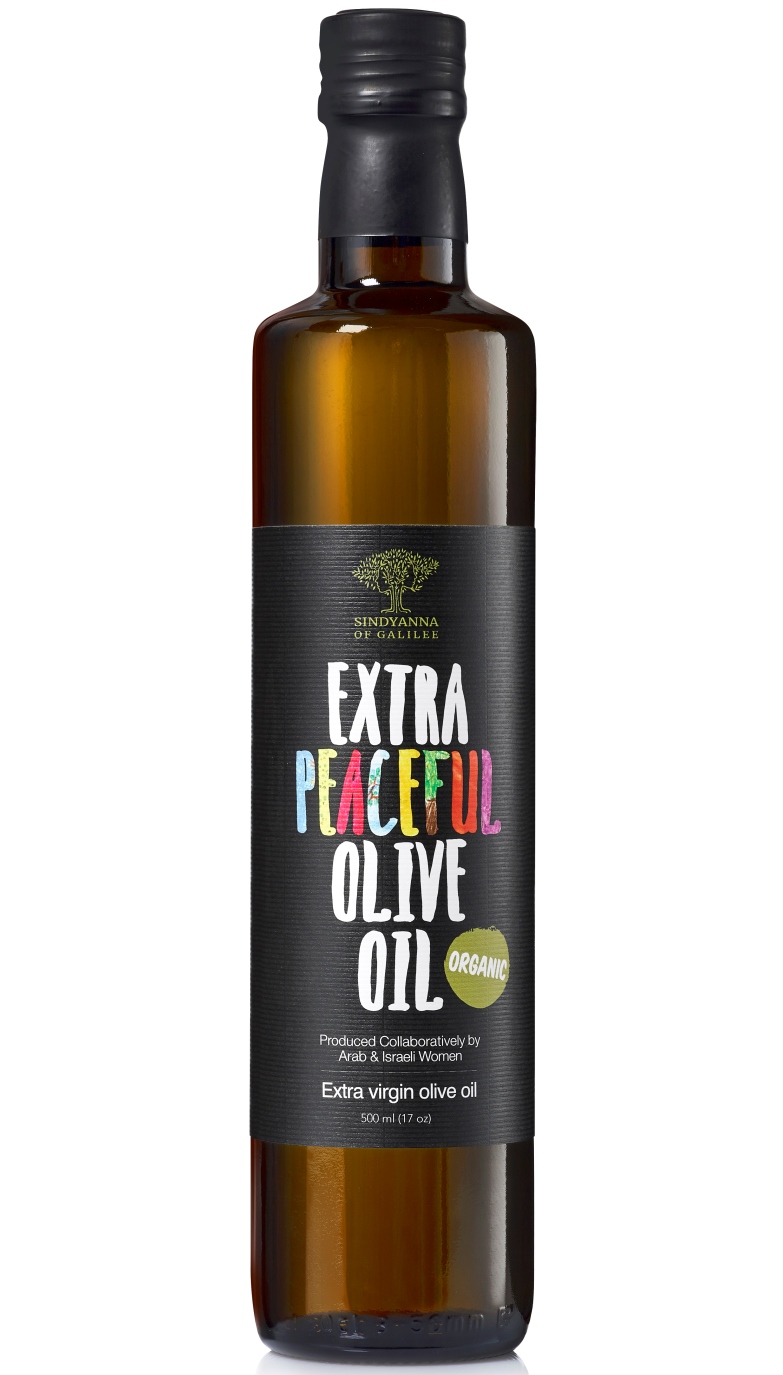
The women help produce a wide range of extra-virgin olive oils (some of which are kosher and organic) made from Barnea and Coratina olives, as well as an award-winning house blend of Barnea, Coratina and Arbequina varietals.
The visitors’ center in the village of Kanna presents a short film explaining Sindyanna’s work and agricultural projects along with olive-oil tastings. There you can meet a group of basket-weaving women participating in a project the nonprofit is best known for.
8. Ezuz
At first glance it may seem like an uphill battle growing olives in an isolated area of the Negev desert on the Sinai border, but then you might have forgotten that Israelis love to prove people wrong, and that the Negev is actually a model of modern agriculture.
Ezuz lies a mere 20 minutes from Kardesh Barnea, where Barnea olives originate from. The business operates out of organic groves that take advantage of floodwater-capture systems built by the ancient Nabateans situated along their international spice route.
As with other desert agriculture, these olives are grown in brackish (partially salty) water, which is known for producing particularly sweet fruits and vegetables.
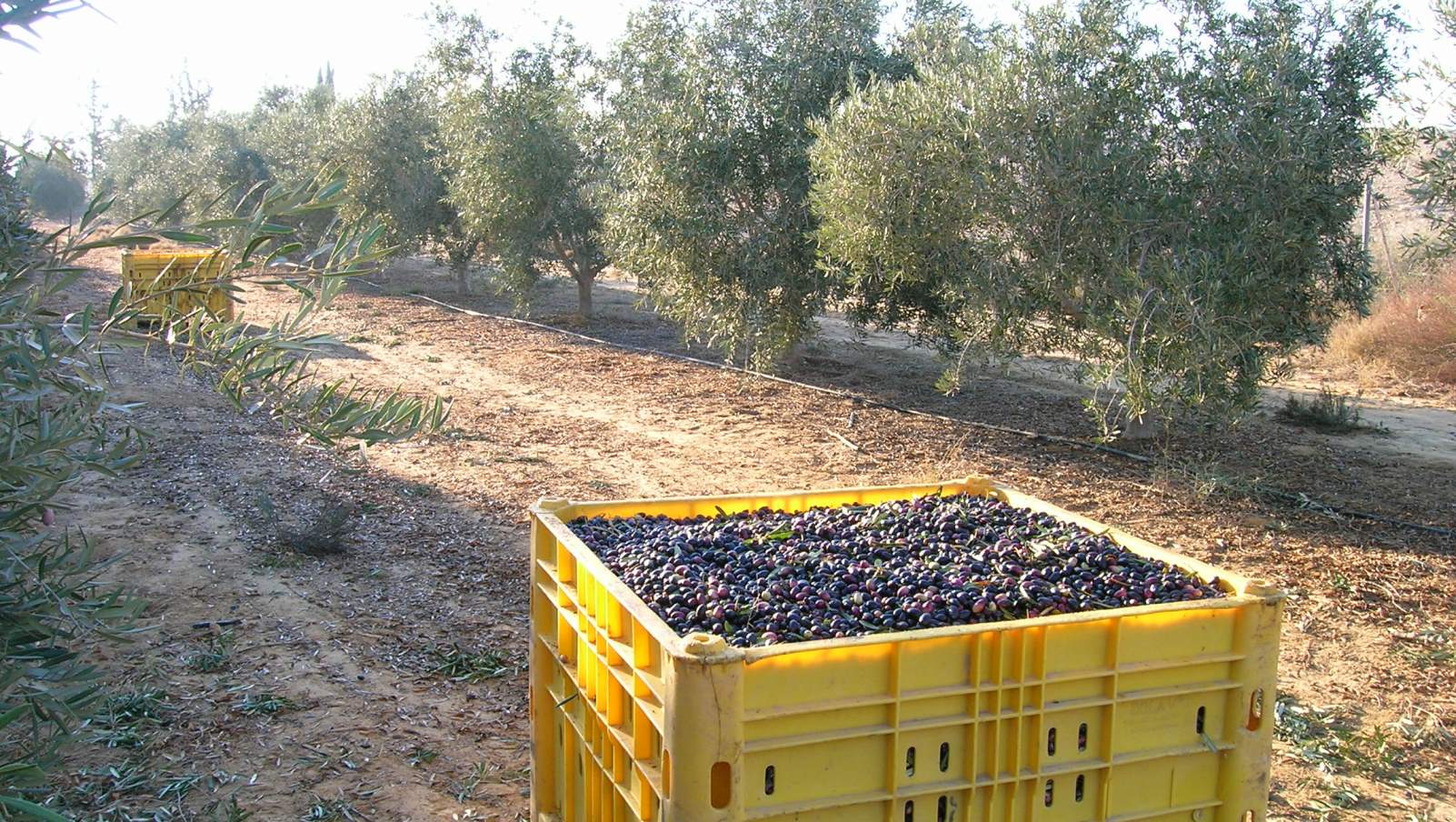
For founder Doron Akiva, it was a love of the desert and an urge to work the land that drove him to help settle the Negev. The result is olive oils made from three different varietals (Suri, Barnea and Picual) irrigated from Moses’ Well – an ancient well located at the adjacent Be’erotaim Oasis, which holds biblical significance.
Each variety can be shipped to your door in Israel or overseas, and has a specific recommendation to be used as seasoning, in cooking, or for other culinary or beauty purposes. They have been found to be especially rich and healthful, which can be attributed to the unique Negev soil.
9. Carmey Golan
With 11 types of award-winning extra-virgin olive oils, Carmey Golan represents the spirit of the Golan Heights and Israeli agriculture. Owners Yair and Ra’ot Golan, a married couple, grew up in this rural region and revel in growing fruit that need a certain climate to thrive.
The olive oils born from their hard work and passion bear descriptors such as “buttery,” “nutty,” “bitter” and “dominant” alongside the olive name, proving just how far this industry has come in the world of gourmet pleasures.
10. Meshek Hilman
Growing olives in the southern Golan Heights near Israel’s Syrian border since 2009, the Hillman family relies on the volcanic soil and cooler climate to help them cultivate superior olives of three types.
Their oils include Arbakina, with a delicate flavor and fruitiness; Coroniki, with a balanced, somewhat spicy taste; and Cortina, which has a strong and slightly bitter taste.
The family’s blog offers recipes and health tips regarding olive oil, as well as a look into daily life on the farm, providing a deeper understanding of what goes into producing award-winning liquid gold on a small scale.




